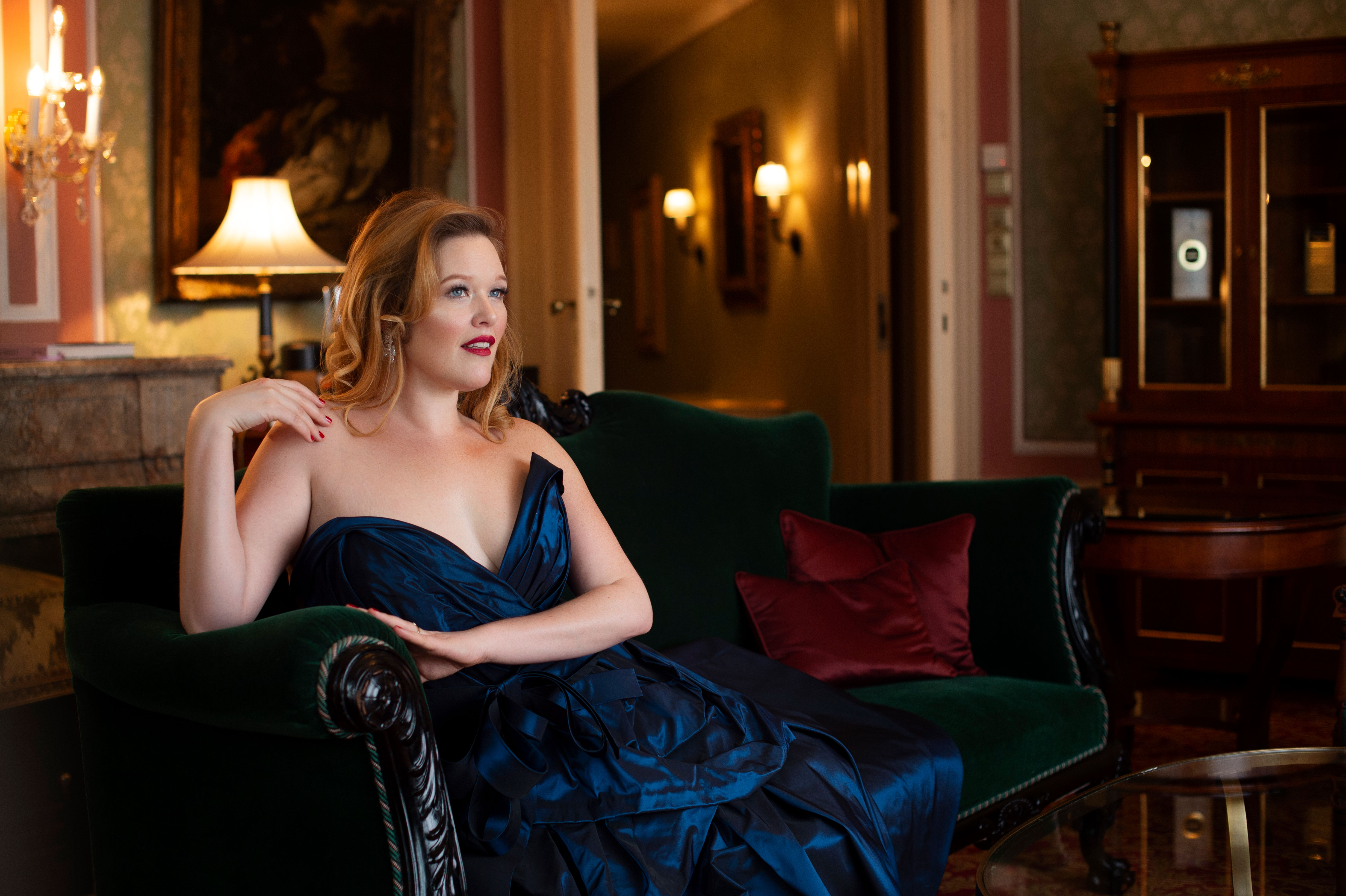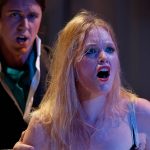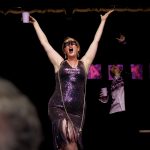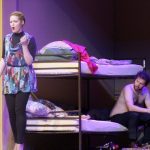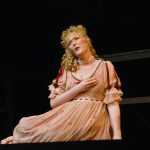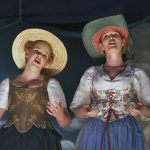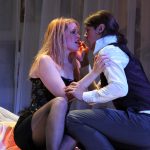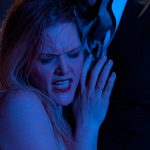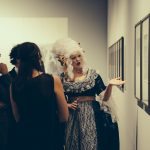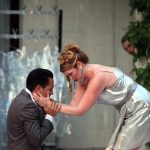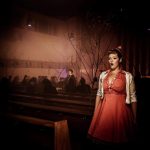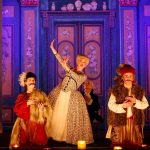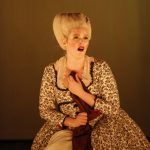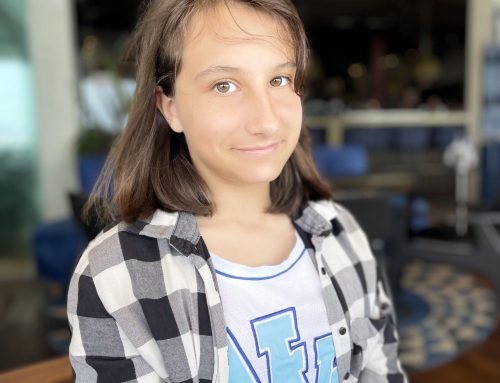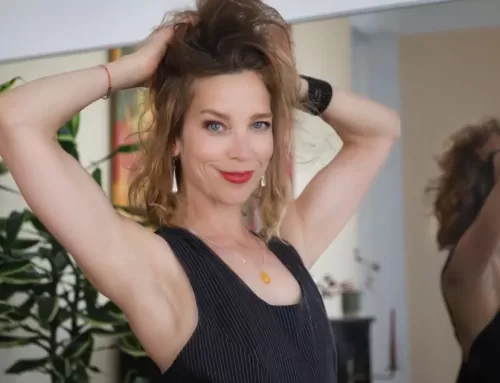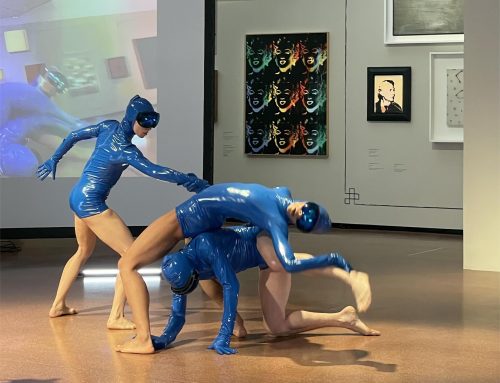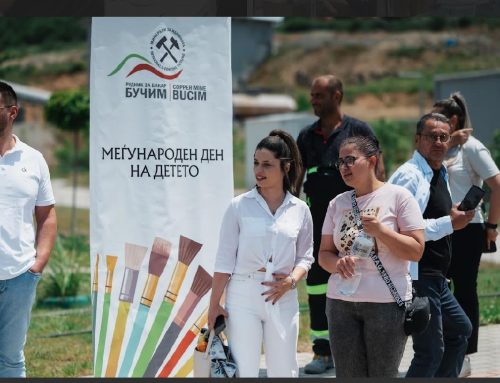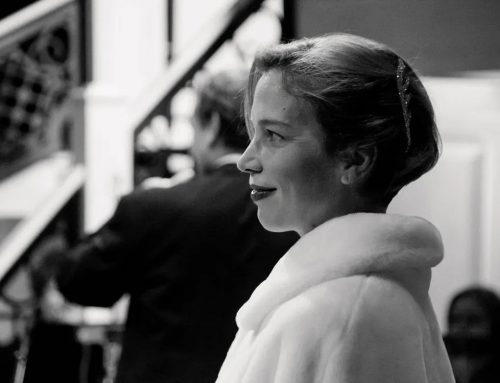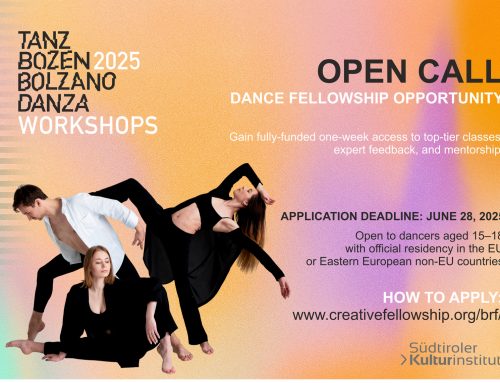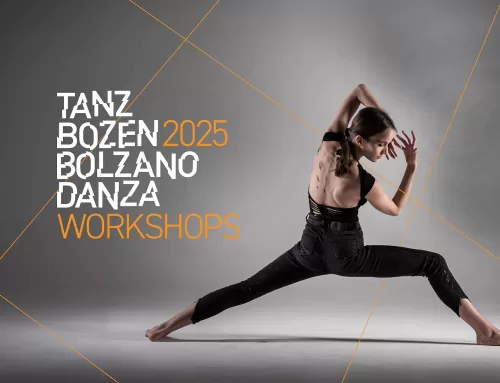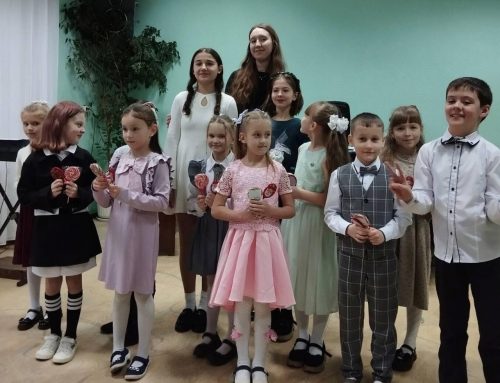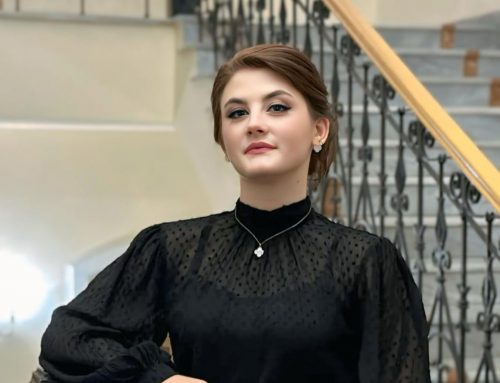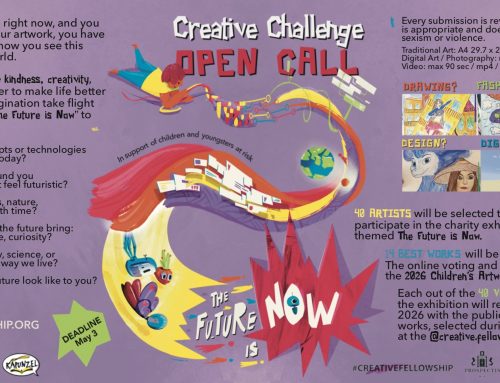Anne Wieben is an American soprano and executive director of the Really Spicy Opera, a US based company focused on the creation of new opera. In recent years Anne became a co-director of the Aria Institute – a fascinating project on writing modern operas and getting them on stage. She has been an active Creative Fellowship supporter since 2019. In our recent conversation Anne led us through the opera writing process and gave a few tips on how to start enjoying contemporary creations.
What Really Spicy Opera is?
Really Spicy Opera is a jewel-box opera company based in Minneapolis, founded in 2005 by Basil Considine, our creative director. The company has given the world premieres of more than thirty plays, musicals, and operas, and launched the careers of more than 150 professional musicians.
What is a “jewel box opera company”?
“Jewel box” means basically we focus on smaller scale productions. We’re not going to do a 2000-seat production of Rigoletto, but rather smaller, more intimate settings– and also our focus now is more on newly written pieces.
What is Aria Institute?
The Aria Institute started in 2020 as a pandemic project. It’s a 4 or 5 week-long program designed to familiarize both composers and librettists with core principles of writing and pitching contemporary English-language operas. Today it’s one of only three intensive modern opera writing programs in the United States, which I think is very, very interesting.
How does Aria Institute work?
Basil is not only a musicologist and interpreter of new and historic operas, but also a composer. He realized that there weren’t a lot of programs for people who try to write things, collaborate, and throw around ideas. You know, like taking spaghetti, throwing it at the wall and seeing what sticks– experimentation! While you are in a university setting there’s a lot of that, but once you get out, there isn’t as much. So, Aria Institute is a post-university intensive program for just that.
We take composers and librettists of all ages and experience levels. We have had a very broad spectrum of people coming in–our past participants range in age from 18 to 65 years old. And while the majority of participants have been based in the US, we’ve also had folks zooming in from around the world, places like Iran or Australia. And some really cool pieces and partnerships have come out of it.
I would like to stress that Aria Institute is not about teaching but about collaborating. And that’s a big, big, big, big focus. We’re coming in here with our areas of expertise and we’re trying to create something new together.
So, it’s a collaborative effort and we really put focus on learning how to collaborate. You get to know how to work with a directive, how to work with someone commissioning you to write a very specific piece. For example, write me a Star Wars based aria that’s 3.5 minutes long for a soprano who can’t sing above a high G. Something very specific like that.
So, I’m on board as a singer, not a teacher. I’m not teaching the participants but giving them feedback based upon my experience as a singer, and as a person who might be singing the pieces created during the collaboration.
How is the process organized?
The way it has been traditionally run, we would have, let’s say, five librettists and five composers, and a five–week session. That allows every composer to work with every librettist (we pair them up differently every week). The pair gets a prompt from the leading time on, let’s say, Friday. It could be anything. I mean, sometimes we’ve had very vague prompts like, I don’t know, write about greed or we’ve had very specific prompts, things like write about a certain Star Wars movie.
Then the librettist has 24 hours to come up with the text, pass it on to the composer who has another 24 hours to deliver the first draft of the aria. It’s a very quick turnaround! We, the leading time, then give informal feedback to the pair after those initial 48 hours.
On the Aria Institute directorship staff, we have two singers and a composer, and we usually bring in some kind of a guest artist. It might be a librettist, a pianist, a conductor – somebody who also can provide feedback.
And, you know, these first drafts come in very different states of doneness– and it’s fine. We want to see what’s there and then help guide the team to create a piece that’s performable, that singers want to sing and that producers want to produce, that will go up on stage and be heard.
We’ve had over 200 pieces written since we started. Some of them have gone on to be performed with chamber orchestras, and there even have been some full-length operas born out of these collaborations, which is also very, very cool.
And I think it’s really important that we push the idea of, you know, what do singers want? What do pianists want? How do we get these pieces up and performed?Getting those pieces out and performed is the biggest goal of the Aria Institute.
So, from what you’re saying it seems that singers play a significant role in the process of opera writing?
They should, yes! There is no opera without opera singers, and I’ve been surprised to see how little is known about the artform, the mechanics of opera singing. I ask one very important thing every Aria Institute: what exactly is opera singing? Surprisingly, a lot of composers and librettists don’t have a clear answer.
Opera singing is a very specific technical tool and a specific type of vocal production. How we make the sound is different than in musical theater, jazz, or pop singing. I like to compare singing with sports (not that I’m a sports person!). If you ask a professional basketball player to play baseball, they aren’t going to somehow be the best in the game just because they are a professional athlete– they are a professional basketball player who is highly specialized in their specific sport. It’s the same with singing. Expecting an opera singer to be as good at singing musical theater as a Broadway star (and vice-versa) isn’t realistic. But you have to know the difference not only in sound but in how the sound is produced.
So, my mission as a singer working on creating a new aria is to ask my collaborators:
What makes it opera? Why is this opera? How is this opera to you? Why does this need to be an opera? Would it be better off as musical theater?
I also offer up specific things like: if you’re writing for a soprano, isn’t this part a little bit too low/high/in a difficult part of the voice? Composers need to know how opera singing works in order to do it justice. And that’s what I’m here for!
What other collaborations are essential for the process?
We want to give the composers and librettists a little bit of control over the process too. It’s very, very interesting to see the collaboration happen.
Librettists provide all the words you hear sung on stage. Those are written by librettists and come from their beautiful minds. Text is important – the words, the speed of its delivery… We always encourage our librettists to send a recording of themselves speaking the text so that composers can bring their inflection and word stress into the musical line.
One thing I’ve come across quite a bit while working with contemporary composers is: there’s been a lot of focus on writing all sorts of crazy things like really high, really low, extremely complicated rhythms, entrances that are hard or downright impossible to find. As a singer you then basically have to pound the notes in your brain and rely on muscle memory more than a logical or melodic understanding of the piece. Remember, singers don’t have buttons to push; we have to feel and find the note in our body and then execute it.
Depending on how composers and librettists feel about the pieces, they might like to release the created arias into the wild on their own programs. I personally have gone on to program many of the pieces I’ve run across during Aria Institute. And we have had showcase concerts as well, like our last concert in Munich which was a sort of “Greatest Hits” presentation.
Can you tell us more about your latest project?
We recently ran Aria Institute in collaboration with the Munich and Hamburg music colleges.
One of our resident singers from Minnesota, Victoria Erickson, who I met in Madagascar on a Really Spicy Opera tour, had the idea to do a postgraduate study abroad. She wanted to test the idea of Aria Institute in Germany, of newly created pieces, you know those singer-friendly, performable, music focused, classical music pieces.
She started reaching out, finding connections, finding ways to bring herself over here to Europe. She decided to do her studies in Hamburg at the Hochschule, but made contact with a fantastic composer in Munich who was so interested in the project that he invited us to come and just do a week-long Aria Institute at the Hochschule, which was very, very cool.
We ended up going to both cities – Hamburg and Munich. What we did in Hamburg was basically the Aria Institute, but Victoria was up there working with students over the course of 2 months. I went up and helped with feedback and then performed some of the pieces with her at the end of March. In Munich, we worked on a more traditional “tight” schedule, with 10 students creating 10 pieces in just over a week. We brought over my co-director Tess Altiveros as well as residence composer Lisa Neher to help out with the Munich edition. It was our first “in-person”, non-zoom edition ever!
As the next step we may take the show out on the road. Your school can hire us, and we will come and do the Aria Institute in your town.
How to listen, appreciate and understand modern operas?
I feel like modern opera is such a wide term. You might end up going to see something like this absolutely wonderful production I recently saw, “Maria de Buenos Aires” by Piazolla– a “tango opera” which was written, I think, in the sixties. Technically it’s considered modern opera, even though it was written over 50 years ago. Or you could end up with something which is very cerebral, difficult to sing with music more like a soundscape than what you’d consider an “opera”. Be sure to research the piece a little before you go so you know what you’re getting yourself into!
What should we start with?
There are plenty of really wonderful modern operas if you get a chance to go see: A Quiet Place/Trouble in Tahiti or Candide by Bernstein are wonderful starter operas in general.
If you’re going to see something newly composed, above all else, keep an open mind and know that it’s going to sound different than Puccini!
And that’s the most important thing, I think: keeping an open mind. Just be curious, listen to it with open ears, and when in doubt, marvel at the artform. Never forget that opera is acoustic. That’s what really sets opera apart from other vocal stylings we know these
days: opera is completely acoustic, meaning those people up there are singing without any microphones or amplification.
So, even if the piece is difficult for you to grasp, you can still respect those opera singers who are executing all kinds of crazy rhythms and notes in a language they probably don’t speak — and they’re doing it all without microphones!

